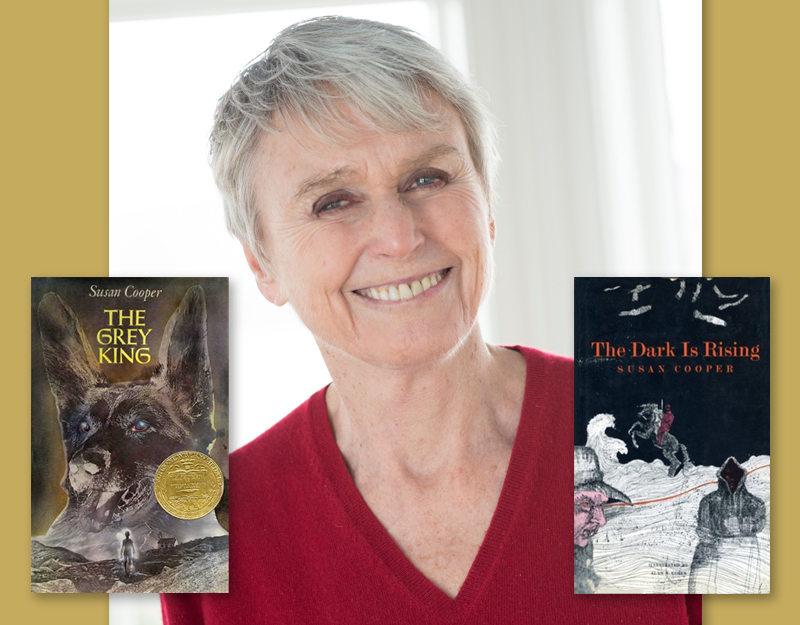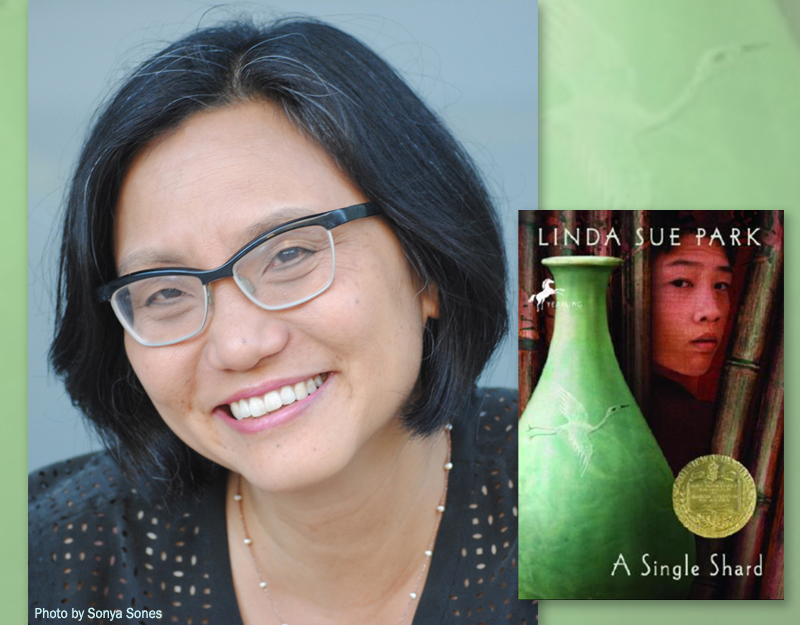“Planet Earth Is Blue” the “Wonder” of 2019? – Newbery Criteria: Vastly Good vs Individually Distinct

I picked up Planet Earth Is Blue by Nicole Panteleakos because it received four nominations in the last two months – as many as Beverly, Right Here, Sweeping Up the Heart, and A Place to Belong (all by former Newbery medalists.)
As I read, Wonder by Palacio kept popped up in my mind. It was published in 2012 and received vast readership and remains strong to this day, in libraries and classrooms. When the 2013 Newbery titles were announced, many definitely felt that Wonder was cheated out of a medal, or at least an honor. It was discussed here at Heavy Medal.
ADVERTISEMENT
ADVERTISEMENT
Similar to Wonder, the story of Nova features a protagonist who is different from many others due to illness/disabilities. She is autistic — and being an autistic child in the late 80s meant that no one understood that she could have a rich inner life and, with proper education and therapy, capably interact with others. Like Wonder, the author employs more than just one narrative viewpoint/style. We have a 3rd person viewpoint following Nova’s exterior life and then we have her first person narration through her letters and internal monologues.
The ending of Planet Earth is Blue is also uplifting and hopeful, where good people with kind hearts prevail and ensure that our main character’s future is brighter than before. Nova and Auggie are both memorable protagonists that with resilience and good nature. I could see this book finding its way to many readers’ heart and join the “Be Kind” movement.
Reviewers have called the book poignant, intricate, masterful, authentic, and exceptional. If I served on the real Newbery Committee this year, though, I might prepare to ask these following questions:
- As readers, we are convinced that Nova has a capable and rich inner life (also because the author’s note and her personal experiences,) but are we convinced that the long letters Nova writes to Bridget would have been so orderly organized and sequenced?
- Is the plot device of revealing Bridget’s death (with strong hints in chapter 9, but could be missed by less experienced young readers) through Nova’s final recollection effective or contrived?
- Do the Space metaphors (Nova – not Supernova, as explained toward the end of the book, the Space Shuttle Challenger launch count down, references to Space Oddity by Bowie, and many others) work naturally and well for all readers? (Consider Nova’s obsessive nature.)
- Is this title “vastly good” due to its important theme and educational potential or truly “individually distinct” due to its literary qualities as demanded by the Newbery Terms and Criteria?
Filed under: Book Discussion
About Roxanne Hsu Feldman
Roxanne Hsu Feldman is the Middle School (4th to 8th grade) Librarian at the Dalton School in New York City. She served on the 2002 and 2013 Newbery Committees. Roxanne was also a member of 2008-2009 Notable Books for Children, 2015 Best Fiction for Young Adults, and the 2017 Odyssey Award Committees. In 2016 Roxanne was one of the three judges for the Boston Globe-Horn Book Awards. You can reach her at at roxannefeldman@gmail.com.
ADVERTISEMENT
ADVERTISEMENT
SLJ Blog Network
2024 Books from Pura Belpré Winners
In Memorium: The Great Étienne Delessert Passes Away
Winnie-The-Pooh | Review
Parsing Religion in Public Schools
Finding My Own Team Canteen, a cover reveal and guest post by Amalie Jahn
ADVERTISEMENT








I did read this book and I saw a lot of really good writing. I also have some questions some similar but slightly different than yours. My first question is similar to yours: I know that the author had autism, but I always wonder with someone who is nonverbal if their thought processes might be different than someone who does talk. You brought up the great question about her writing being very organized. The ending and plot device did not bother me and I loved the space metaphors. I have an autistic nephew and his thoughts and conversation comes peppered with his favorite topic in the same way. When it comes to being good enough for Newbery, it does not top my list, but someone could talk me into voting for it.
There’s a lot to unpack here. I would be interested in talking about a few points, especially in relation to how this article is framed. While I do see how Wonder can be compared to Planet Earth is Blue, comparing two very different books because they fall into an arbitrary illness or disability category feels…distancing to these experiences. Why when reading a book about an autistic child does one think about a book about a boy dealing with his facial difference?
Yes, the narrative of being different and navigating other people’s expectations of you can have similar threads, but in the end both characters in each respective books are dealing with significantly different experiences in which I don’t think can easily be compared.
I also do not see as wide a readership and support backing Planet Earth is Blue, and feel that Panteleakos captures a snapshot of Nova’s life in a “individually distinct” way thoughtfully and powerfully.
To respond to some of the points raised here:
1. I think this may fall into what our perceptions are of someone dealing with autism and being nonverbal. We are “skeptical” that Nova would be capable of organized thought. That is our perception, much like people in Nova’s past who were unable to accept that she was more than they could see. That she is capable of complicated thoughts or feelings even though she isn’t communicating with the world in the way that we expect.
The letters work wonderfully (for me) to frame this novel’s emotional core. They show the reader how Nova sees the world and what she fears. They open us up to think about our own expectations on what we believe she could see. Yes, the letters may not be something that physically exist as well-written as what is seen on the page, but they are what Nova is living through and visualizing and feeling. While reading, I did not question their existence. I felt like they were an extension of Nova, of her trying to find her way while pushing down the dark truth of her memory, and hoping that without Bridget she can be seen.
2. I’m normally against twist endings revealing an important character was dead the whole time. It is not an easy plot device to pull off. With Planet Earth is Blue, I think the entire novel is set up for an exploration of grief. From the very first two lines:
“Bridget was gone.
And Nova was broken.”
There is no lie in this introduction. It is the emotional truth of this story all in two lines. Bridget IS gone. Nova IS broken. But Nova is not yet ready to come to terms with her own experiences with how Bridget died. She has not felt safe enough with strangers to be emotionally vulnerable. It is only when Nova feels completely safe with her foster family that she is able to accept the burden of her sister’s death. I think this novel is one of the best uses of this “twist” ending, and was set up from the very beginning.
3. I think I would have to reread again to unpack the space metaphors and how effective they are. I do see aspects of them working really effectively. It also felt like her obsessions with space were present and thought out within the plot.
4. I truly think what one sees as “vastly good” and another might see as “individually distinct” is SUBJECTIVE. Every year, people are shocked or not shocked by books that win the Newbery or Caldecott. We debate their merit, we wonder what the committee saw in their chosen books and what they didn’t see in the ones that got left out. We probably will never know what pushed one book over the edge. It’s how we are able to talk about that book and look deeper than our own perceptions that we can hopefully see what someone else does.
For me, I felt Planet Earth is Blue is “individually distinct” because of the way grief, autism, and family are explored. In a age category full of grief narratives, this one uses effective themes, tools, and structure to present the reader Nova’s journey. For me, this book will stay with me for years in ways others I’ve read this year will fade.
TJ – thank you so much for the thoughtful responses to many of my queries. I will respond to a few of your points as well. You wrote, “comparing two very different books because they fall into an arbitrary illness or disability category feels…distancing to these experiences.” I would say that I did not put these two books together because of one singular factor. I stated more than one element: “a protagonist who is different from many others due to their illness/disability; the author employs more than just one narrative viewpoint/style; endings of both are uplifting and hopeful due to the kindness of others; both books have memorable protagonists with resilience and good nature.” Perhaps I should have also compared the book to this year’s titles, such as Song of a Whale, to see how the authors handle the protagonists’ inability to communicate effectively — from a character-development lens.
Also my follow-up questions and your and others’ answers would help me better appreciate the book — they are not always indicators of negative opinions.
One of the premises of the effort toward diversity in children’s literature is that readers want to see themselves in books. So one question I have about PLANET EARTH IS BLUE is whether children on the autism spectrum will identify with the character of Nova? The author’s bio says she has taught creative writing to students with autism, so I am prepared to accept the ability of her character to organize and sequence her writing. Perhaps the day will come when a children’s novel written by an autistic author gives us additional insight into that thinking process.
I do think that revealing Bridget’s death at the end works. There is plenty of foreshadowing of this fact.
I was less sure that young readers would know the disaster that would occur on the Challenger. I , of course, remember that fateful day but am not sure it is an event that all students know.
I agree with TJ that this is a book that I would go back to many times because of the multiple layers of meaning.
I had the same thought about the Challenger disaster, but I think it was not something that Nova would have known was going to happen either. If the reader does not know about it, I think that sending them off to find more information is a good thing.
I actually heard about this book from a friend who listened to the audiobook with her 9-year-old daughter, who was recently diagnosed with autism. She brought it up to me because her daughter connected with Nova in a way that she typically doesn’t connect with characters in books and she wanted me to find more books like this one.